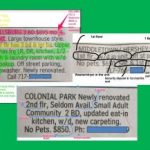
Years ago, I took a class on edible flowers with my local extension office. Not only was it pleasing to the eye, but it was tastefully pleasant as well! Recently, I was reminded of edible flowers when meeting up with a former student and dear friend; Ashten Swartz. She shared with me that she developed recipes for GRIT magazine around the theme of edible flowers…you’ll find her recipes linked below! Anyway, one thing led to another, and we ended up getting together to experiment with edible flowers in one-pot meals. Ashten developed the below recipes and I must say they looked and tasted amazing! I plan to share these with my students in hopes that they utilize edible flowers in some of their recipes as they experiment in the kitchen.










